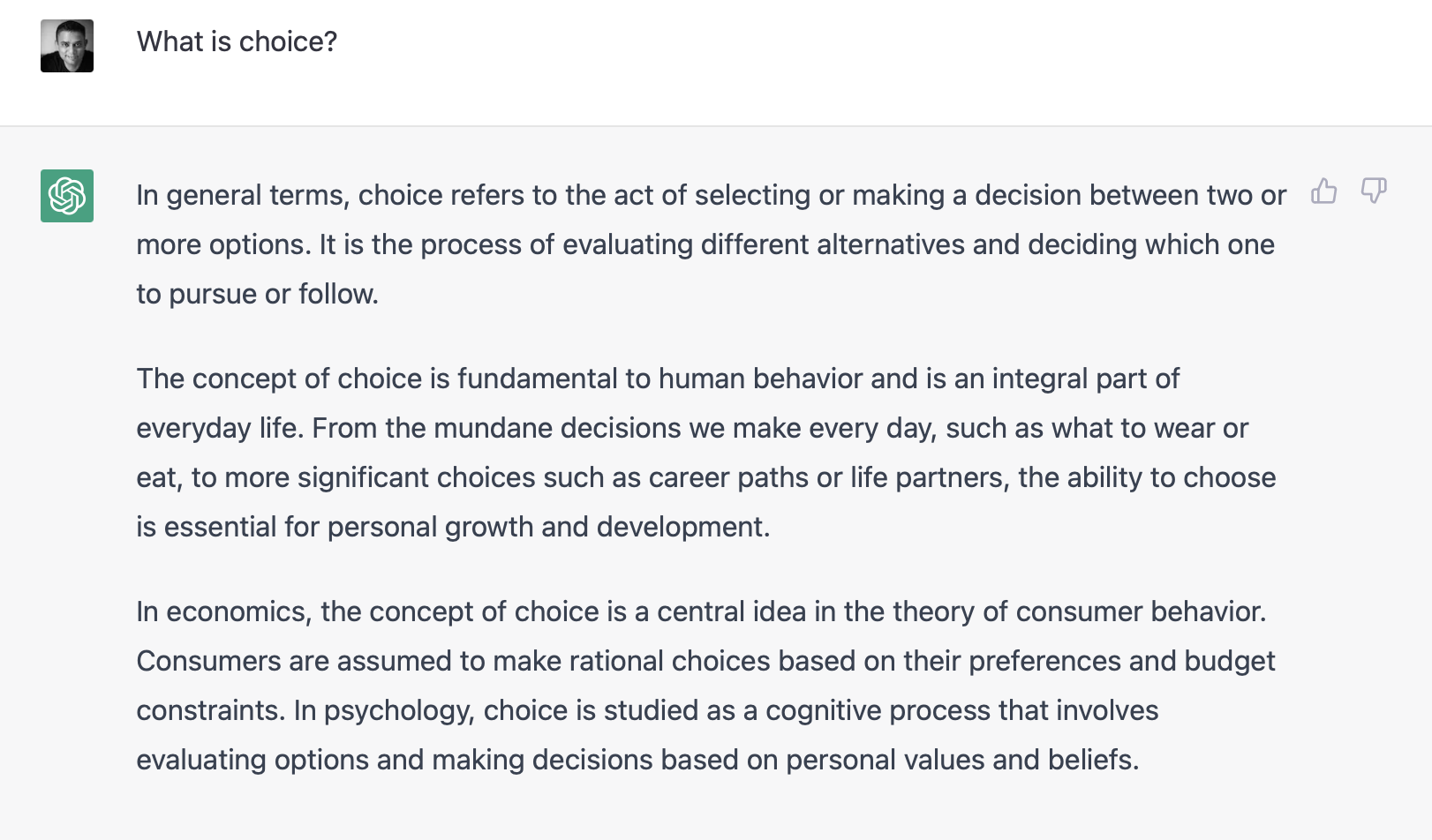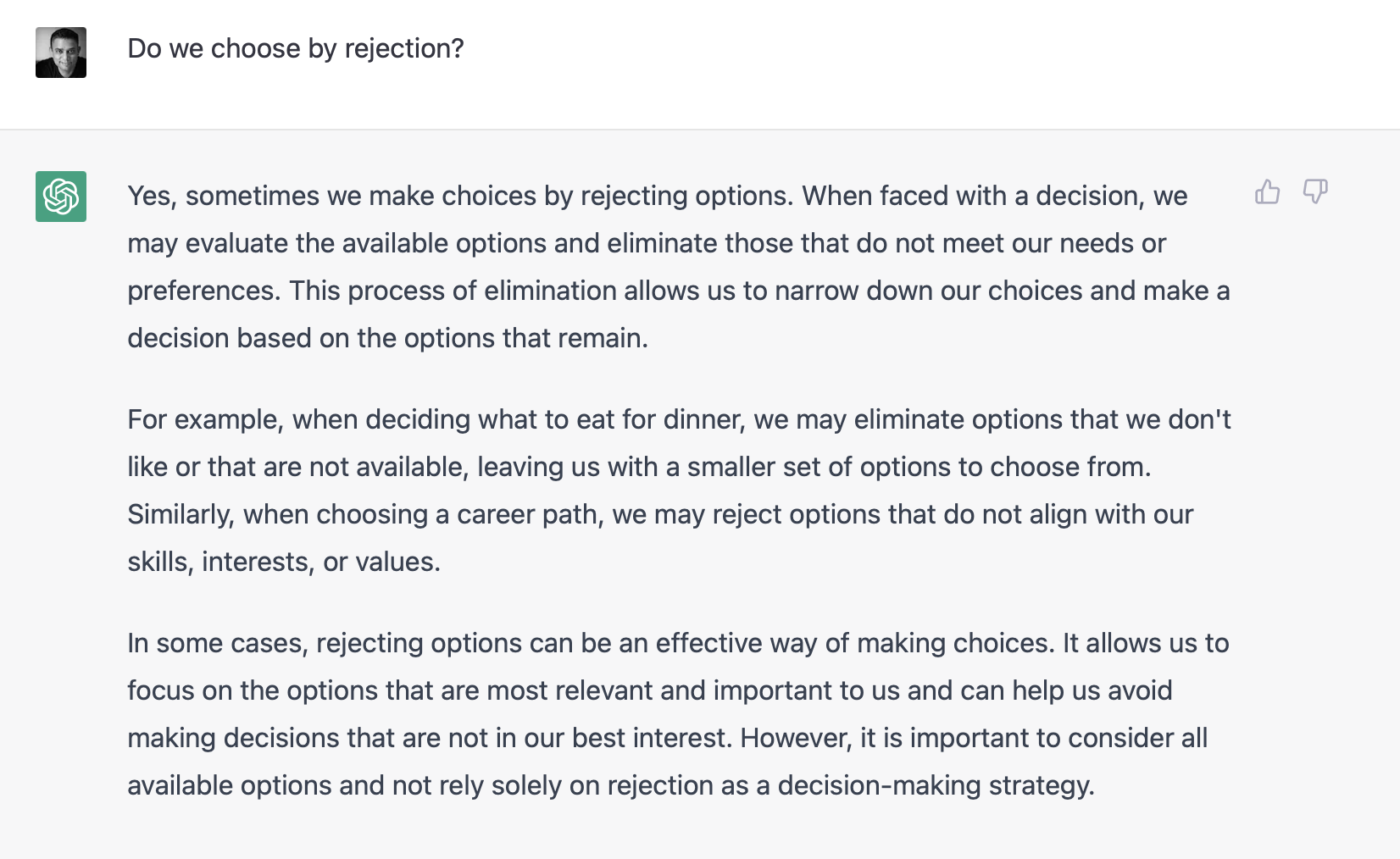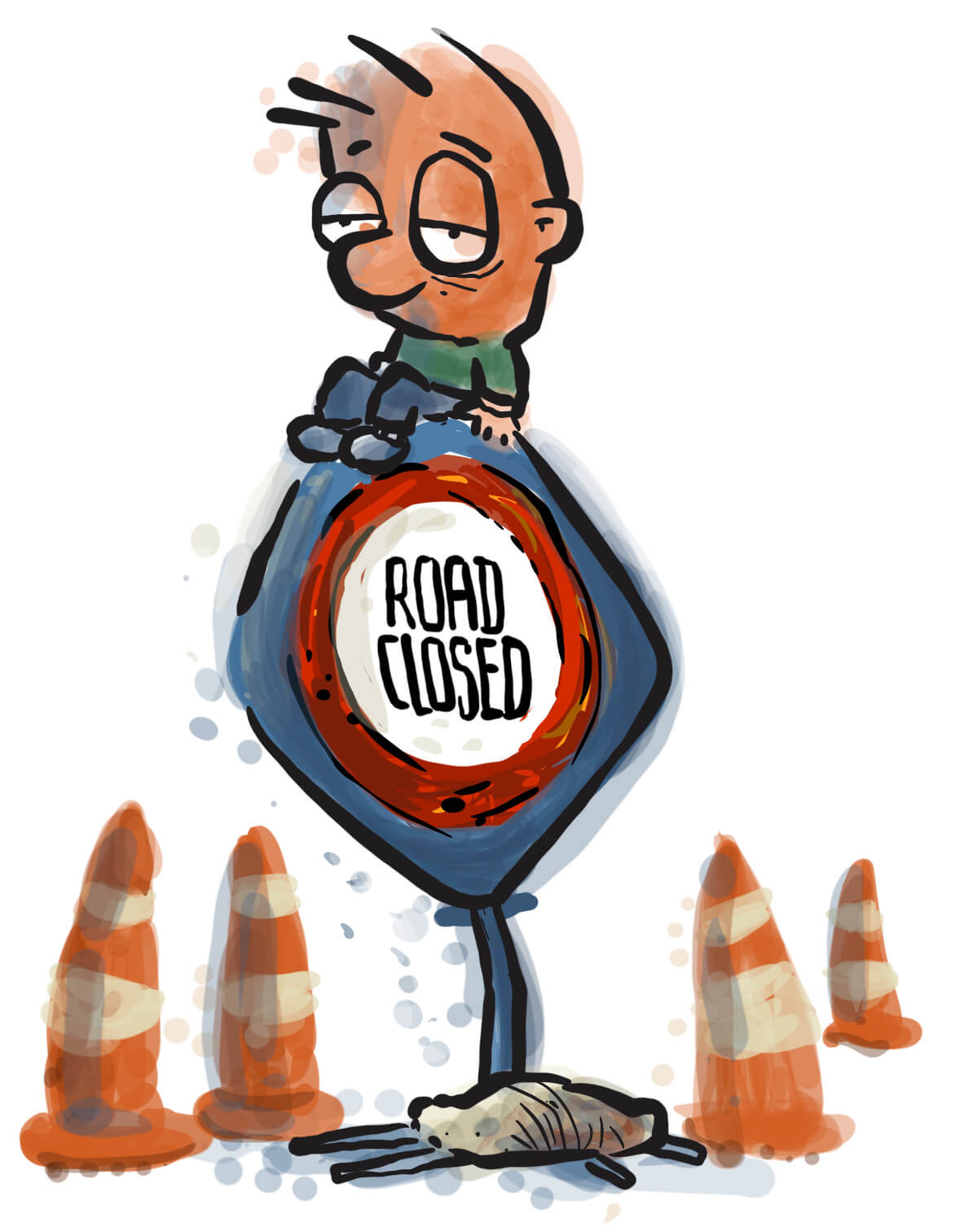Should I use AI to write articles? Is AI a threat to Writers? Will AI replace me as a writer?
AI has sent a chill down the spines of many of those who create content for a living. Won't so much content saturate the market?
Why would a client choose your work when some other similar work can easily be put together by AI?
The reason why you needn't worry is because people have not changed much. They still make their decisions based on specific logic. Let's see how you and I make decisions.
Right click to save this episode.
In the past (well, until a few months ago) the question that people would ask was:
If there are so many articles, and so many articles on my topic on the Internet, why would anyone read mine? The answer is:
1- Because they like the way you write.
2- Because they like how you explain things.
3- Because others (at some level) annoy them.
These are the reasons why millions of cookbooks have existed and there's still room for a hundred Jamie Olivers, or a thousand Sanjeev Kapoors. It's why there are already millions of people teaching guitar on YouTube, and teaching similar things and yet there's still one more person who can get an audience.
Saturation of information has already been achieved. AI has done nothing in terms of competition and I don't suspect it will do anything that hasn't already been done. However, the client is always looking for something new, different, easier, better etc.
And that's why no matter how much stuff is churned out, your voice can still be heard. It's also the reason why you should get better at:
1- Being able to write
2- Being better at explaining
3- Being less annoying 🙂
Why do people keep looking for new writers (or new content creators?)
There are several reasons why we read/watch or listen.
1- To solve a problem (right now).
2-To solve the problem, but to understand the bigger picture
3- Pure entertainment
4- To stumble on something we weren't looking for, in the first place.
1- To solve a problem (right now).
The most common form of reading is what we do on Google. If I'm trying to learn how to get rid of the worms that are in the fruit tree, I will look it up. If I'm trying to figure out a dance step, I will search for it on YouTube. And similarly, when trying to figure out what “showoff” means in Spanish, I will go to an online dictionary or source.
That's a transaction-based action and the one we tend to do most of all. You don't tend to pop into the library to figure out a word. You don't buy a book to understand a line. When we want the bigger picture, we look for something we can dip into several times.
2- Understanding the bigger picture
Let's say you want to understand why you're struggling to learn a language. You run into a video, and the person speaks 10 languages. It's at this point, you realise that the person has systems or at least an understanding that's slightly different from yours. You need more depth, and a bigger picture. At this point, it's no longer just you dipping your toe and running away. You want to jump in and stay for a while.
When you read more than one book, watch more than one video, or continue to do a course from start to finish, you're digging into the bigger picture. It's possible, for instance, that you joined Psychotactics because you read a single article.
The article gave you a feeling that wasn't a “dipping your toe” phenomenon. You then possibly went on to buy a book like The Brain Audit or Chaos Planning. At this point, you're starting to roam widely in the Psychotactics universe.
We do this kind of deep dive a lot when we get better explanations, or faster results. There may be ten thousand personal trainers or yoga classes, but the reason why you choose one over the other is because you know there's more to this than just a one-time transaction.
3- The third reason is pure entertainment
We call it entertainment, but it's really an understanding of structure. When you watch a terrible movie, you are going through the transaction. You've committed to watching something and it's too much trouble to find another movie, and so you watch. We do the same on YouTube. We may watch a video or two and then leave. When someone is truly entertaining, they are working on two separate levels.
They're giving you information, but also doing so in a way that's making you curious to want more. When Dan Brown (author of Da Vinci Code) writes, he's also giving you historical context. If you were to read a novel that has a great story vs. a novel that also informs you, which would you choose?
We want to be smarter, more informed etc. Hence, when we're writing or creating something that's instruction-based, we have to insert entertainment. When we're creating something that's entertaining, we have to add “information”. Which takes us to the fourth reason: the stumble.
4-The stumble
In the course of a trip abroad, we often stumble on a little restaurant, or a shop with lots of fountain pens and fancy paper. We didn't set out to find it, but we have and we're excited. A lot of YouTube watching is almost always a stumble, as is reading on any topic you're interested in.
You know where you can get fountain pens on the Internet. You still want to find that place you're not looking for, and when you do, you're deliriously excited.
Will AI do all of the above? I doubt it. We're always looking for personality, for fun, for the bigger picture etc. And for context. That's why you need to learn to write, to draw, and to speak. Because humans may do what's transactional—we all do. But they also want to do what's more interesting. They always have and they always will.
The other aspect of AI—or machine learning—is that it will think like a lot of humans do.
Hence, yesterday I was on a call with a photographer because I wanted to learn some software. He has a method of doing things that is fabulous. However, that method requires the camera to have certain features. He said he's never seen a camera that didn't have those features, but I don't think my camera has those features.
This means we're at a dead end.
A lot of information has this “dead end” kind of feeling. We've come to a conclusion and then every article feels similar. Hence. if I were to ask most people “what is choice?” their answer would be similar to the information below.

A good answer?
Of course. But is it interesting enough? Of course, not. I'm giving you the obvious answer. But let us say you take a contrarian approach. Would the answer be radically different?

The reality is that we make choices only when we're unaware. Hence, the reason why Renuka and I ate purple pasta in Rome is because it was before we had apps and the Internet. The restaurant in Rome looked good enough and we sat down and ordered the pasta. It was pasta with squid ink, but I call it purple pasta because it reminds me of how horrible it happened to be.
We didn't know better, so we choose by “choosing from a series of options”.
Once we do know better, the choice factor shifts to the other extreme. Now we are choosing “any restaurant” but that restaurant. We won't go back to that restaurant, maybe even if all the restaurants are closed and there's nothing to eat.
Then, moving along, we get better at choosing a restaurant. At this point, we're making an instant selection. We're picking a restaurant that had great food, but we are also rejecting all the rest. Hence, even though it doesn't seem that way, we're rejecting at high speed, so that we can choose quickly.
When choosing a partner, we may do the same. At first, we're choosing. However, that's only when we don't know many facts, or aren't sure what we want. After a while we start rejecting. If the person we are to meet doesn't have certain criteria, we then reject them so that we can get to a choice factor.
And this is where these two points come into play
2-To solve the problem, but to understand the bigger picture
3- Pure entertainment
The bigger picture is this understanding of “how do we really choose” and the “entertainment” is about the trip to Rome and eating purple pasta. Any stories, case studies, photos, cartoons etc. (in the realm of writing) would constitute entertainment.
This is why people choose you, instead of the next person. It's also why they would choose you over AI.


Leave a Reply